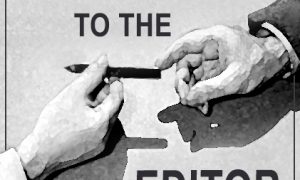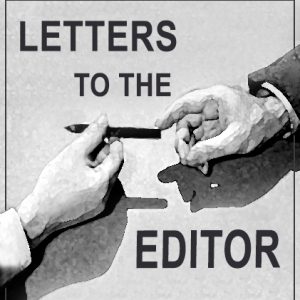To the Editor,
Many voted for President Trump because of his “excellent” background in business. Sure! Reports from Trump’s grade at Wharton School, he was the last in his class. As a businessman, Donald Trump ran casino companies that spiraled into bankruptcy four different times. He persuaded voters in 2016 that he’s a savvy businessman who would run the government with a new kind of efficiency. A report came out, found the GDP is down, new jobs are down, consumer spending is down, and manufacturing production is down and laying off employees.
The New Yorker reported, Based on Internal Revenue Service transcripts of Trump’s tax returns from 1985 to 1994, the Times report said that Trump’s core businesses racked up losses of more than a billion dollars in a ten-year period. During 1990 and 1991, the story said, Trump’s losses were so significant that they “were more than double those of the nearest taxpayers in the I.R.S. information for those years.”
The financial reprieve that Trump’s businesses received turned out to be temporary. In 1991, his Taj Mahal casino, in Atlantic City, filed for bankruptcy protection, and, not very long after, so did his other two casinos—the Trump Plaza and the Trump Castle. In 1992, the Plaza Hotel filed for bankruptcy, and Trump agreed to turn over many of his remaining assets, including Trump Shuttle, to his creditors. With the help of the banks and his father, who repeatedly gave him money, Trump managed to escape the humiliation of personal bankruptcy, but his days as a swashbuckling entrepreneur was done. For a decade, or more, he largely confined himself to licensing deals, entertainment ventures, and minority investments that cashed in on his personal brand, which somehow survived his dramatic fall.
Donald Trump’s golf resorts in Scotland posted millions of dollars in losses, hotel in Panama had rebranded itself, and New York officials announced are looking into how he avoided paying tens of millions in taxes. The Washington Post says private documents it has seen show income to condo-hotel owners at a New York property dropped 14 percent from 2015 to 2017. The newspaper reported a similar drop at a Trump hotel in Chicago. He has no regard for consequences. Trump doesn’t care if 800,000 federal workers are going without a paycheck, and thousands of businesses are losing money because of his shutdown. He tells farmers losing access to foreign markets and manufacturers struggling to pay the higher cost of new tariffs that trade wars are in their interest. Trump has no regard for their growing losses. He dismisses urgent climate warnings published by experts in his administration. And Trump’s tax cuts are pushing the annual deficit to $1 trillion and beyond, further burdening future generations. Sounds exactly like the guy who borrowed recklessly until his casinos couldn’t make the payments, always sacrificing future stability for a splurge today.
Congressman Seth Moulton, MA, said it best: “Donald Trump obviously does not understand basic economics and how tariffs work because he’s carried on this trade war that’s accomplished nothing with China, but it’s hurt our farmers, our Fishman, and our American families.” Trump’s definition of economics is: bad mouth and bully adversary.
China knows precisely what it is undertaking. Tariffs are one of the oldest trade policy instruments, with their use dating back to at least the 18th century. Historically, the main objective of a tariff was to raise revenue. In fact, before ratifying the 16th Amendment in 1913 and formally creating the income tax, the U.S. government raised most of its revenue from tariffs. Even so, the primary purpose of a tariff these days tends to be about protecting particular domestic industries from foreign competition, alongside raising revenue. The impact of a tariff depends on whether the levying country is large or small – not in terms of size but the potency of its trade and ability to influence world prices.
Let’s get something straight: importers pay tariffs, NOT exporters. Walmart pays, and then you do. Trump still doesn’t know this after two-and-a-half years in office. He thinks the Chinese are paying the 25% tariffs. None of it comes from China. It all comes from American businesses that import Chinese goods
The bottom line is that Trump’s trade war has affected our economy. The uncertainty would cost into the company’s bottom line and our pocket book.
Norman Halls




